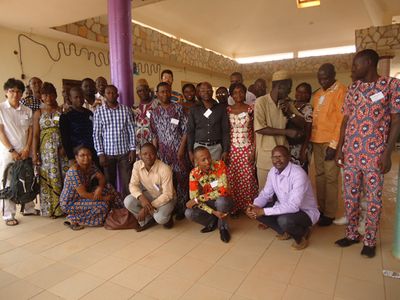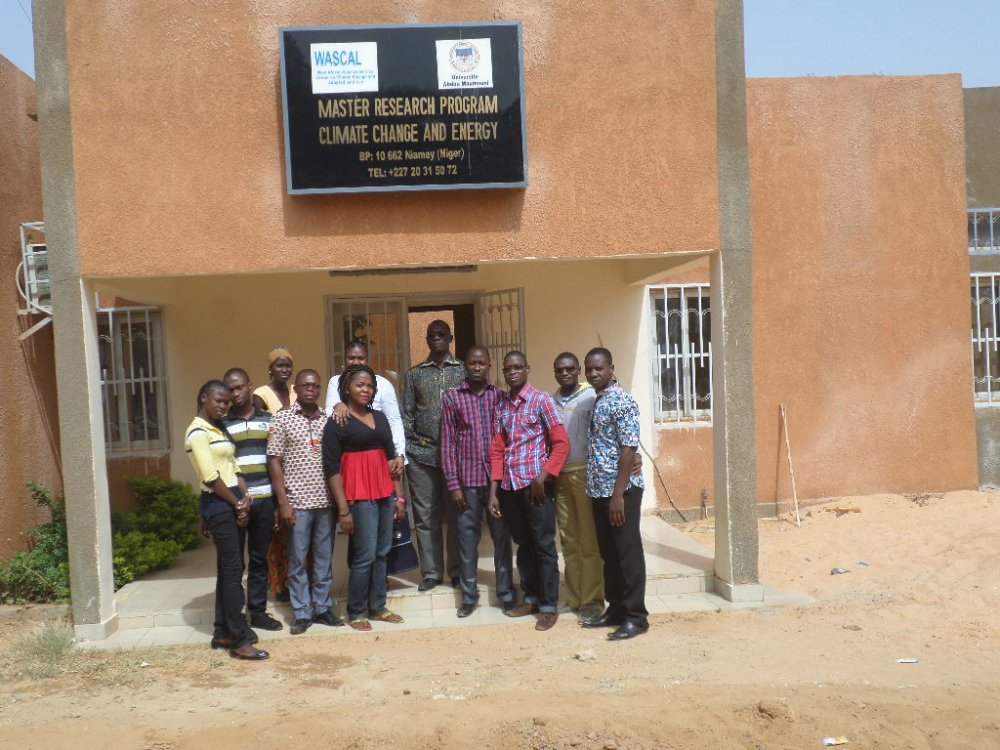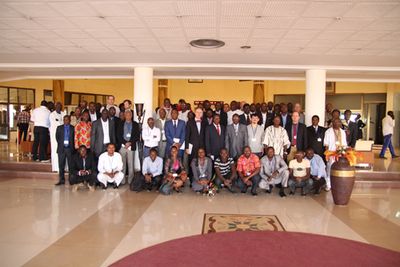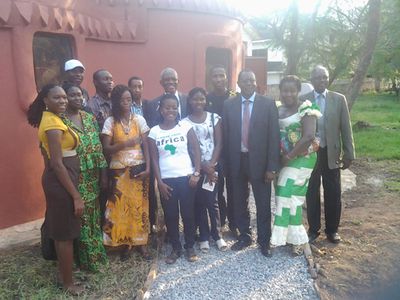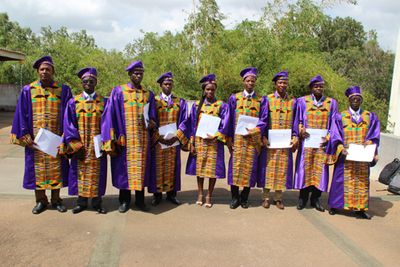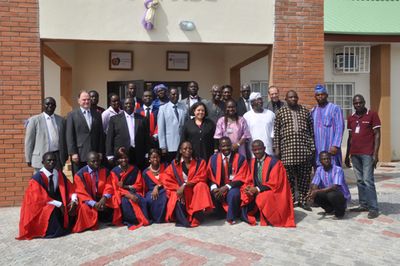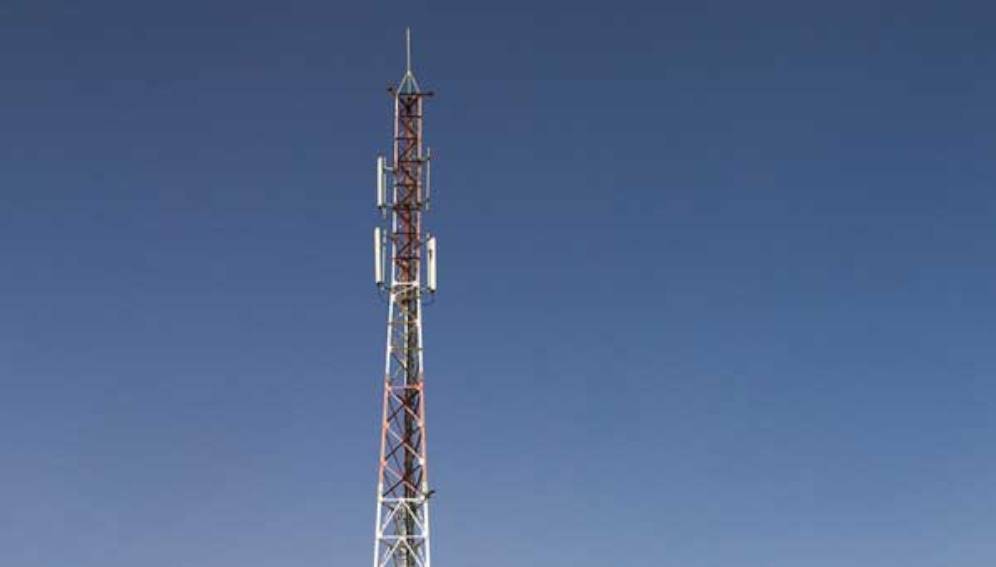The workshop was organized around four main themes and aimed to give greater visibility to research activities of WASCAL in Benin and to stimulate discussions and exchange among researchers, local communities and authorities on strategies of resilience to environmental and climate changes.
The four themes of the workshop were:
Challenges of field research in the study of populations and environmental and climate change
Collected data documentary relationship on environmental/climate change and population dynamics in northern Benin
Rural resilience to Climate Change in the northern Benin
Local resilience actions versus interim results Restitution
Chaired by the representative of the municipality of Matéri, the workshop was opened by Adolphe Sétondji Avocanh, Coordinator of the Dassari Watershed. During his welcome speech he stressed the importance of a constructive exchange on climate change effects, population dynamics and the impact of these changes on existing natural resources. He further presented WASCAL and its objectives, its centers of interests and the role of the involved stakeholders.
Papa Sow (WASCAL, ZEF), who initiated the workshop, emphazised the importance of exchange between all invited actors for a better understanding of climate change and its impacts on natural resources in the region. He further outlied the workshop objectives and presented his research on climate change and population dynamics, where he and his team focus on social aspects of climate change with a perspective from the social sciences to find solution-oriented approaches to adverse effects related to climate and extreme natural events.
The workshop offered an opportunity to present and discuss the interim research results with the participants and to submit the interim results to critical examination. The participants gave valuable feedback and supported the research with additional information. After two days of debate the discussions among participants of the workshop diverged on to the possibility of an institutional partnership, writing scientific research projects under the umbrella of WASCAL and future collaborations between scientists, local populations and policy makers.
Organization Committee
Adolphe Sétondji Avocanh, WASCAL Coordination Unit of the Dassari watershed in Tanguiéta.
Email: a.avocanh(at)yahoo.fr
Phones: 0022995151808 / 00229-97540798/ 00229-90987818
Jane Maureen Ngonjock
Email: janescorpy(at)gmail.com
Yasmina Adebi, Téléphone: 0022997160464
Email: yadebi(at)yahoo.fr
Scientific Committee
Papa Sow, Researcher, Center for Development Research, University of Bonn (Germany)
Boubacar Barry, Director of the WASCAL Competence Center, Ouagadougou (Burkina Faso)
William Fonta, Researcher WASCAL Competence Center Ouagadougou (Burkina Faso)
Karen Greenough, Researcher WASCAL Competence Center Ouagadougou (Burkina Faso)
Daniel Callo-Concha, Researcher, Center for Development Research, University of Bonn (Germany)
Kiansi Yantibossi, Executive Secretary U-AVIGREF
N´Sera Midama Parfait, Head of Ecology Service, Pendjari National Park
For further information, please download the flyer or the program in English or French:
Download program in English
Download Flyer in English
Download program in French
Download Flyer in French


